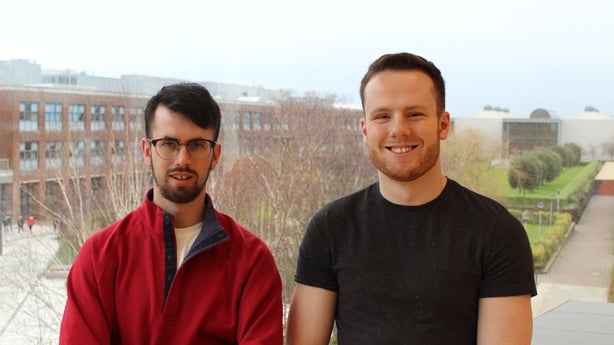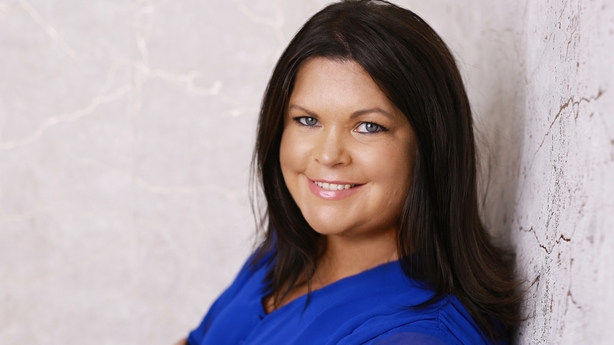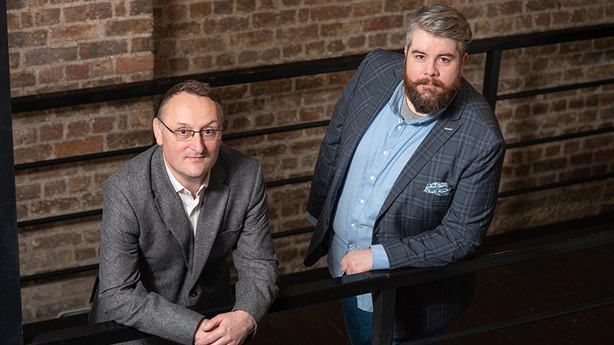As part of our Boost My Business initiative, Fiona Alston asked four Irish tech start-ups for three things they have learned during their first year of business.
Peter O'Connell is the founder of Shuppy, a platform which connects customers with local Irish businesses creating gift ideas for all occasions.
- There's so much communication out there at the moment, and there's so many channels, people just get completely bombarded with information. I think the one thing that I've taken away from this year is you need to keep communications brief and to the point. Generally, people are just so busy, they just want snap points and they'll appreciate it more.
- When you are all working remotely you have to give people clear instructions and be quite specific in terms of what responsibility you want them to take on, so they get it. One thing that I've started doing this year was creating video content of standard procedures to make it easier for people to follow.
- For someone who hasn’t lived in Ireland for a number of years, I found the talent and the spirit of the Irish people genuinely, really inspiring and I wanted to do more as a result of it. People weren't standoffish, they might have been busy, but they went out of their way to try and make time for you - that in itself was just something that I picked up on myself that maybe I had either forgotten about or underestimated.

Daniel Kyne is co-founder of OpinionX, a user-driven research tool for discovering your users' biggest unknown pains and motivations.
- Only solve the problems that need solving. I don't think we realised how much you can avoid wasting time by just looking at what already works out there and basically building that into your product - look at what other people have spent loads of time figuring out and just build those learnings in.
- For the last year, we've done loads of different accelerator and mentorship programmes and at times it's honestly felt like we've just been up to our necks in advice. The best thing we've learned is who to take advice from. The best information we've gotten has been from customer discovery research and the best mentors we find are the ones who ask you questions, making you think about that you are doing and why.
- Do your research early. We spent a few months after we did our first pilot building what we thought we needed to do. And then by the end of August we started setting up Zoom calls with people to show them the product and found we’d made so many wrong decisions. Talk to your customers more - the sooner and more frequently you can do that, the better.

Sorcha Finucane is founder of TrainedIn, a platform dedicated to training and consultancy providers, across the spectrum, to showcase their businesses and their services.
- I engaged with the Local Enterprise Office to carry out a feasibility study before I started. We did a huge amount of research and we were able to remove certain things from our plan based on the feedback we got from people and we're able to accelerate certain aspects of our product plan based on the results of our focus groups. Research is a really important to do.
- I have a tech company, and I'm not tech orientated, and found it very difficult to understand the tech talk and things can be lost in translation, which can be a very costly blunder. I learned very quickly that you have to articulate exactly what you mean and if you are not happy with something, even if somebody's telling you that this is what you should do, stay true to your own beliefs and to your own direction and to your own vision, because it's your business, it’s your company.
- Find the right market to reach your customers. Understanding your target customer, the language they use, where you find them will make sure that you get your message to the appropriate people and it engages them.

John Maguire is the CEO of TripAdmit, which provides digital solutions and distribution partners for the tourism activities industry.
- Listen to your customers. I know that might sound cliched but there are always opportunities, even in the worst of circumstances, and Covid created problems for everyone. People wanted to book in advance, and people just didn't want to risk walking up to book an activity so we could help businesses respond to that with a digital solution.
- You need to make a plan and be agile about it because obviously, your plans change. Look at what you need to deliver whether that is staff or whether it's funding, etc.
- And my third one is related to that – you need to take risks and just go for it. We knew when the travel industry went quiet earlier this year we were going to have to build up our technology to build a reservation system primarily targeting the activities operators, as opposed to the airlines. We needed more developers to build it out and we needed funding to pay for the developers we were going to hire but they didn't necessarily happen in the right order - one of the risks we took was we hired the developers before we had the funding.








